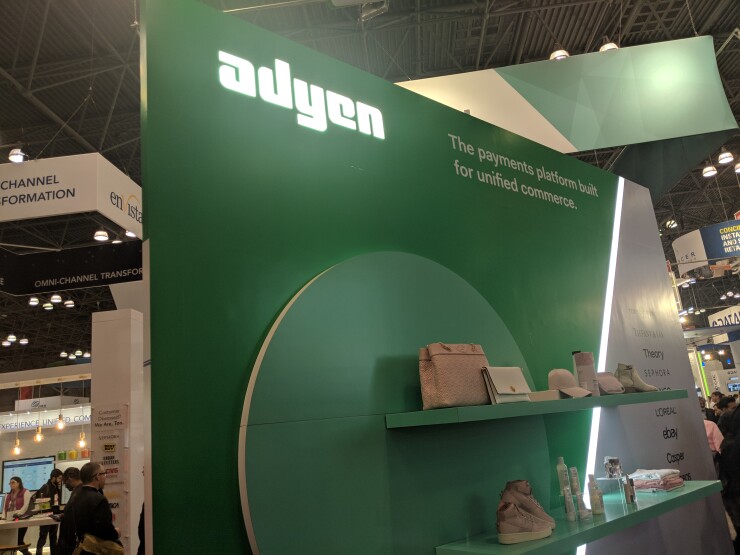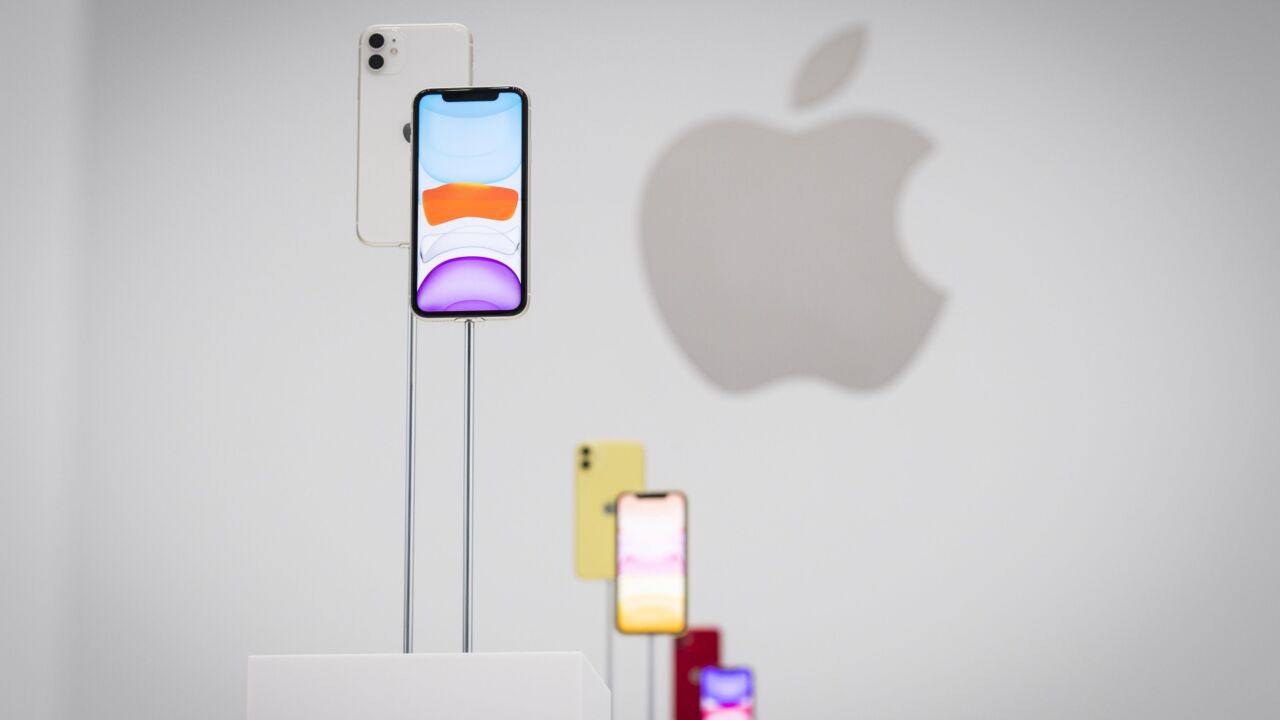An Apple feature that allows iPhones to serve as mobile point of sale terminals is getting an early look from the financial technology platform Adyen, which views the innovation as an added option to combine shopping and payments as traditional checkout hardware fades.
"Depending on how many use cases you have for your business, this could be a complementary option or a replacement in some circumstances," said Kamran Zaki, chief operating officer at Adyen. "If you want some associates to be more mobile, you can do that. You can have some at a fixed location and some that don't have to go back to the counter to perform checkout."
Adyen recently adopted Apple's Tap to Pay, which allows businesses to use iPhones for contactless payments. The technology is Apple's entree into point of sale acceptance, though the feature is not a full-fledged payment processing system.

The Adyen deployment pushes hardware-based point of sale terminals toward obsolescence, said Stephan Schambach, founder and CEO of NewStore, an early partner with Adyen on the Tap to Pay deployment. NewStore sells a cloud-hosted platform for point of sale, order management, inventory and consumer apps, with clients including retailers UNTUCKit, Marine Layer, Burton and Faherty.
"The main impact is the payment is going to be more natural and convenient," Schambach said, adding that the integration is in pilot testing with two clients in New York ahead of a broader rollout in the next few months. "They can use the same app to check out items or to sell items that aren't available in the store but are online."
Adyen is hoping to expand its ability to offer omnichannel payments and shopping. The processor's customer base is mostly enterprise or mid-market businesses — which is a different market than Square and PayPal's core merchants, generally sole proprietors like plumbers, dog walkers or single-location merchants. "It's an incremental technology update option for these businesses as their needs evolve," Zaki said.
Apple's planned update for accepting contactless payments on its handsets is as disruptive as it is inevitable. Companies like Ingenico, which makes point-of-sale hardware, have strategies in place to build on the tech giant's platform without sidelining their own devices.
Apple
Apple's initial partners included Stripe, which uses an application programming interface to allow merchants to support digital payment technology. Apple did not provide comment.
Apple is introducing Tap to Pay in a manner similar to Apple Pay, which launched without a card attached. Apple Pay required consumers to enroll a payment card when the app launched in 2014. Apple later partnered with Goldman Sachs to issue its own Apple Card, so it's possible Tap to Pay could eventually turn into a merchant acquiring and processing vehicle for Apple. But for now, Tap to Pay is an option designed to make it easier for merchants to support contactless payments.
"Migrating the point of sale to commercial off-the-shelf [COTS] devices is the logical next step in increasing access and lowering cost in physical world commerce," said Thad Peterson, a strategic advisor at Aite-Novarica.
But there is more to be done before COTS-supported payments mature, according to Peterson, noting Adyen is offering an iPhone solution, which would limit its value for organizations and markets where Android devices maintain a significant presence.
If a "soft POS" solution is to be generally accepted and used by a wide range of merchants in different markets, an Android option needs to be available, Peterson said. "While the initial growth of tap-to-pay on COTS will be an app on a smartphone, it's possible and maybe probable that the technology will spawn new generations of devices to enable transactions," Peterson said. "Agnostic solutions that include Apple, Android and probably Huawei will need to be in place and available to make that happen."
Adyen did not answer questions on whether it plans to partner with Android to provide smartphone acceptance in a manner similar to the iPhone's Tap to Pay. So far, Adyen's work with
Payment terminal technology companies, have responded to the trend to digitize.
Axium includes a point of sale card reader that is being updated to move its technology to the cloud, potentially supporting a wider range of computing devices. Ingenico has also added technology that allows payments through a chip card reader and a paired mobile app.
Diebold Nixdorf recently appointed
And






